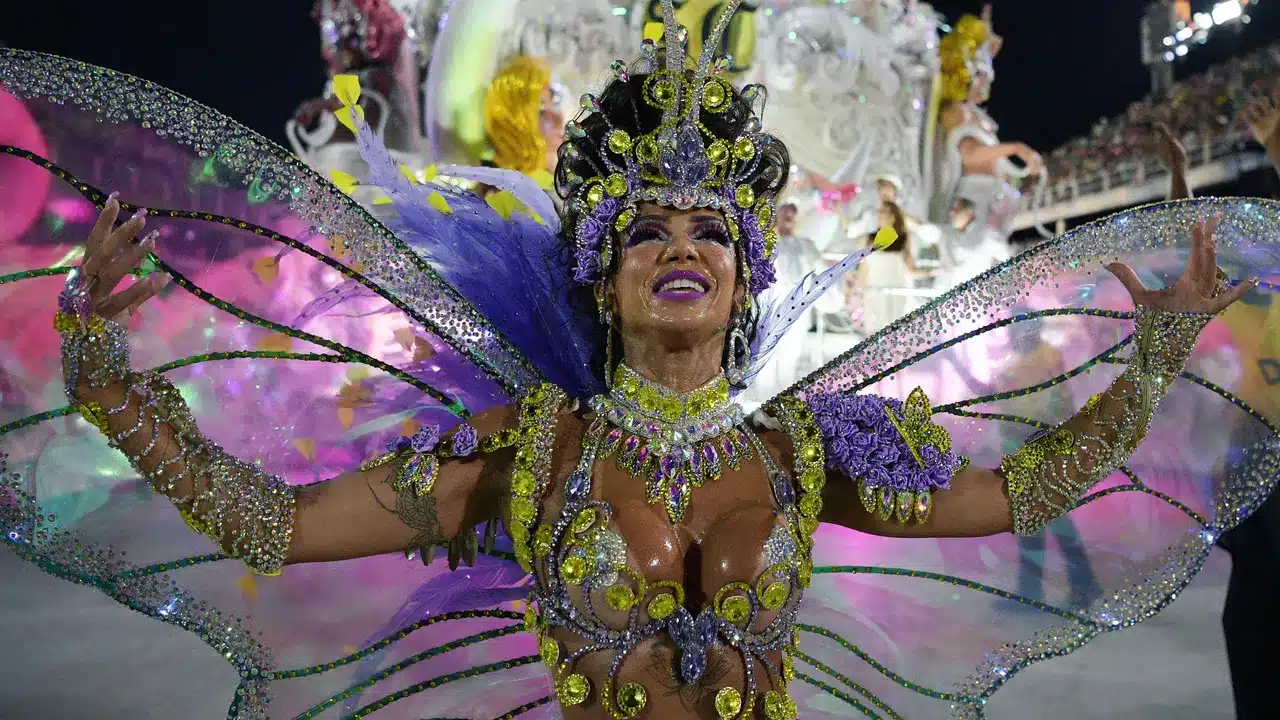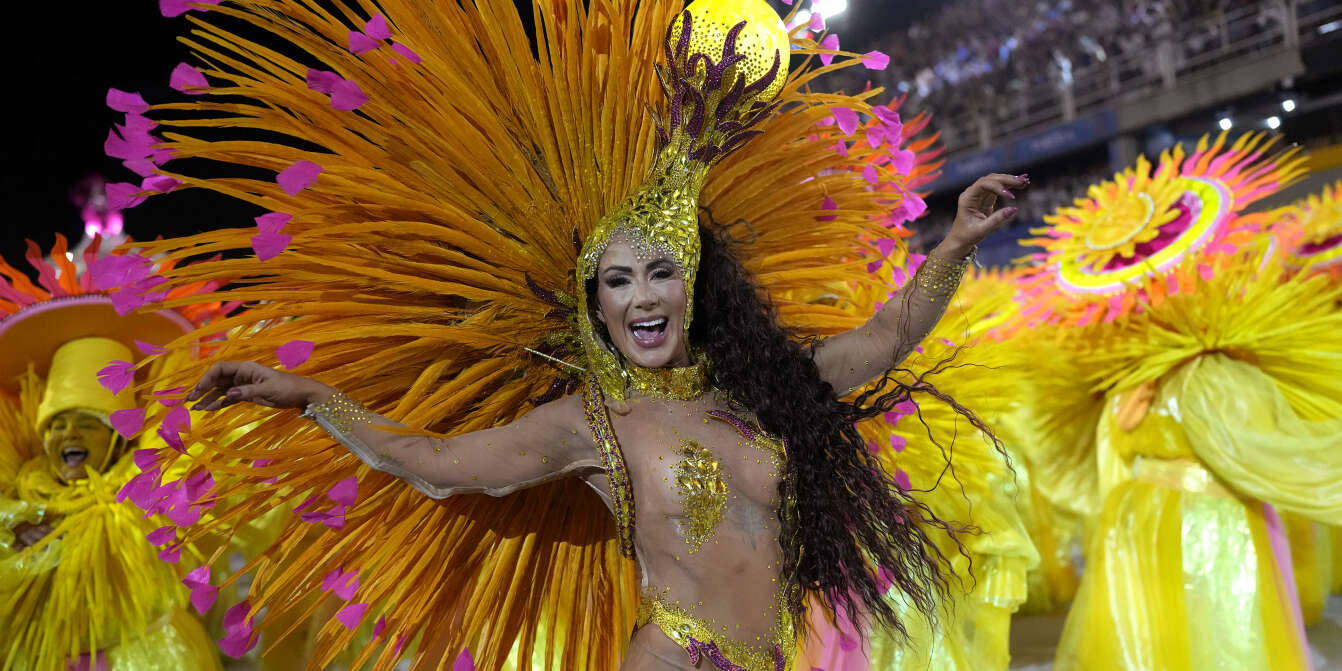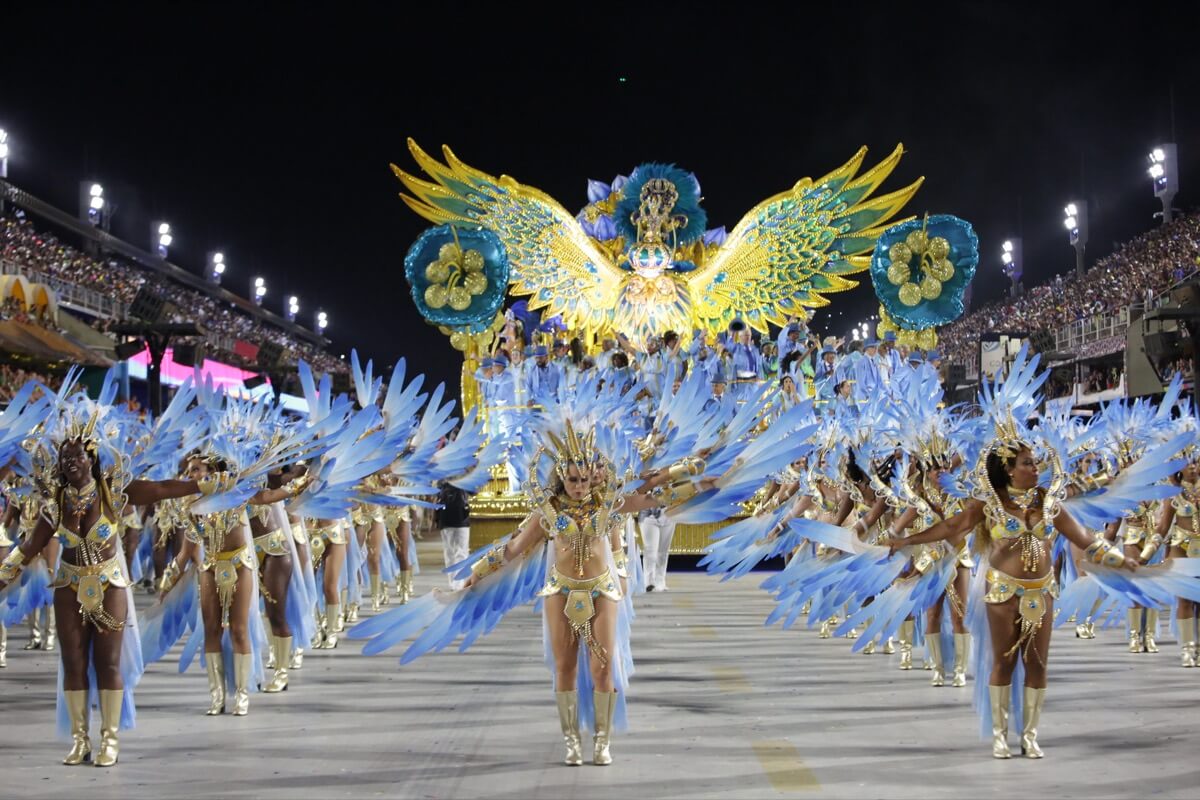Entertainment
Rio De Janeiro Is Betting On Carnival For ‘Cooler’ Parties – And A Better Brazil

Rio’s government made its largest investment yet in 2024’s Carnival. If it pays off, everyone benefits.
Rita de Cassia Oliveira takes a quick break to rearrange a display of multicoloured earrings before returning to serve a group of tourists. They are choosing dazzling shorts and glittering bikini tops for this year’s Carnival street festivities. During this time, Oliveira trades her typical swimwear products for Carnival clothes, and she expects February’s income to increase compared to previous months.
“It’s the best time of year for those who work on the streets,” she explains, setting up pots of glitter at her outdoor shop on a popular Copacabana street corner.
Rio De Janeiro Is Betting On Carnival For ‘Cooler’ Parties – And A Better Brazil
Shopping in Rio de Janeiro picks up in the weeks leading up to Carnival. The festivities draw many national and international tourists to see the world-famous parades and block parties. But it’s more than simply a good time for Brazil; it’s also a moneymaker. Tourists spend millions during Carnival, creating thousands of temporary jobs in the city.
Rio de Janeiro is expected to earn a record 5.3 billion reais (£846 million; $1.06 billion) from tourism-related activities in February this year. The state government has invested the highest in Carnival preparations and celebrations for 2024, totalling 62.5 million reais. The infusion of capital has resulted in a record number of jobs and strengthened infrastructure to support tourism, and it is expected to provide long-term socioeconomic changes to the city.
“For every one Brazilian real invested in tourism in Rio, it brings a three to fourfold return,” says Ronnie Costa, president of Rio’s tourism board Riotur. The Carnival investment is well-timed. Brazil welcomed record numbers of international tourists last year, bringing $6.9 billion (£5.5 billion) into the Brazilian economy, a 1.5% increase over the previous best income achieved in 2014 when Brazil hosted the World Cup. The country’s Tourism Plan aims to reach $8.1 billion (£6.4 billion) by 2027.
In Rio, the government has been spending on infrastructure, security, and mobility to attract visitors. This includes more flights into the city’s major international airport and enhanced police presence in tourist areas. This year, Rio will have more than 12,000 military police officers on duty during Carnival, a 5% increase from the previous year.
Officials hope this will help to counteract Rio’s reputation for violent crime. The National Confederation of Commerce (CNC) reported that this image cost the state 3.3 billion reais (£536 million; $660 million) in tourism in 2023.
“The city needs to enable decent infrastructure to receive all these tourists, so the City and Rio State are making investments to create a good, positive experience,” says CNC’s chief economist, Felipe Tavares.
Rio has also invested 40.5 million reais (£6.5 million; $8.1 million) in samba schools, the clubs that organise the city’s iconic parades. The schools open to the public several weeks before Christmas, allowing visitors to view and participate in singing music, and dancing rehearsals.
“When schools have more money, they may spend on equipment, costumes and floats. Tourists will notice something neater, tidier and more sophisticated; a cooler avenue and cooler parties; and a better day-to-day experience’, says Carlos Werneck, president of the tourism organisation Visit Rio.
Rio De Janeiro Is Betting On Carnival For ‘Cooler’ Parties – And A Better Brazil
In addition, they’ve committed tens of millions of reais to prolong Carnival celebrations beyond the statutory five-day period. The capital has already helped pay for the typical block parties on weekends soon after New Year’s and will support the street celebrations that continue in the weeks after the parades, providing tourists with a Carnival experience in Rio during the first quarter of the year.
Tourism officials from Riotur and Visit Rio say there may also be plans for a Carnival-style celebration in the middle of the year.
Many Rio locals rely on the celebrations and subsequent visitors for income. According to Costa, investments in 2024’s Carnival have created 50,000 jobs, most benefiting socially vulnerable populations from low-income districts. Samba schools employ hundreds of seamstresses, musicians, performers, and organisers.
Full-time employees in Brazil are often paid an additional month’s income at the end of the year, known as the “thirteenth salary”. According to Oliveira, a street vendor in Copacabana, Carnival earnings are the equivalent of this incentive and an opportunity to pay off obligations and save. Rio officially registered 15,000 street vendors to work during block celebrations and parades this year, up from 10,000 last year.
Rio De Janeiro Is Betting On Carnival For ‘Cooler’ Parties – And A Better Brazil
“Carnival represents an important source of extra income for independent street vendors to increase their revenue during this period,” says Bruno Guerra, director of popular parties at Dream Factory, an event and entertainment firm. “This extra money helps support their families and pay additional expenses, often playing a fundamental role in the financial stability of these independent street sellers.”
However, Tavares emphasises that it is not just about profit. “When we have such a large development in Carnival and tourism, we see significant social improvements in the region,” he said. “Rio is getting more professional in the Carnival and tourism sectors. More people in tourism speak English and Spanish.
You can see options in two or three languages. Rio’s entire city and economy are adjusting to become an international and national tourism destination.”
In February, São Paulo state is set to receive a record 16.2 billion reais (£2.6 billion; $3.25 billion) in tourism revenue, over three times that of Rio state. Tavares attributes this to the region’s vastness. “We are seeing destinations that were not traditional for Brazilian Carnival, such as the states of Paraná, Rio Grande do Sul, Minas Gerais and São Paulo growing a lot every year.”
This is a beautiful time for Rio’s street vendors, such as Oliviera. She states, “It’s like Christmas for us.”
SOURCE – (BBC)


































